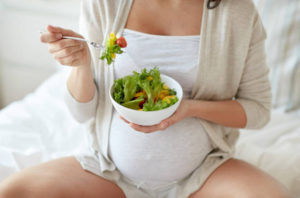Prenatal vitamins are an important part of staying healthy while pregnant. Not only do they ensure that you and your baby are getting the right nutrients, but they can also help prevent some common pregnancy complications. What happens if you don’t take prenatal vitamins while pregnant? In this blog post, we will discuss the consequences of not taking prenatal vitamins and how they can impact your pregnancy.
What Are Prenatal Vitamins And Why Is It Important?
Prenatal vitamins are a type of supplement that pregnant women take to ensure that they and their babies are getting the proper nutrients. They contain higher levels of certain vitamins and minerals, such as folic acid, iron for the baby’s growth and development, and calcium helps to build strong bones and teeth, which are important for a healthy pregnancy. It can be taken in pill form or as a liquid.
Supplements are important, but they are not a substitute for a healthy diet. A pregnant woman should eat a variety of healthy foods, including fruits, vegetables, whole grains, lean protein, and low-fat dairy.

What Are the Consequences of Not Taking Vitamins?
You may be at risk for several problems, including:
- Anemia: Anemia is a medical term that refers to the lack of adequate healthy red blood cells to transport oxygen to body tissues. Anemia causes you to feel weary and weary.
- Preterm labor: This is when labor begins before 37 weeks of pregnancy. Preterm labor can cause health problems for both you and your baby.
- Birth defects: You may be more likely to have a baby with a birth defect. Birth defects are conditions that occur when something goes wrong during the development of the baby.
- Low birth weight: A low birth weight is a newborn who weighs less than 5 pounds, 8 ounces. Low birth weight infants are more likely to have medical issues and require longer hospital stays.
How Can I Make Sure I’m Getting Enough Prenatal Vitamins?
The best way to make sure you’re getting enough vitamins is to take a supplement that contains the recommended amount. You can also eat foods such as leafy green vegetables, legumes, and fortified cereals.
Signs Of A Healthy Pregnancy
Many signs show a woman is pregnant and progressing well. These include:
1. Increased frequency of urination
As the womb grows, it puts pressure on the bladder leading to more trips to the washroom.
2. Fatigue and Tiredness
In the early days, extra progesterone causes fatigue. The body is also working hard to create a new life support system for the baby. As the pregnancy progresses and the baby grows, tiredness increases.
3. Nausea and Morning Sickness
Around 50% of women experience nausea and vomiting in early pregnancy, especially in the first trimester. It is caused by hormonal changes. Some women only feel sick at certain times of the day, while others have it all day long.
4. Food Cravings and Aversions
Hormonal changes can lead to strong food cravings or aversions. Some women crave foods they normally wouldn’t eat, while others can’t stand the sight or smell of certain foods.
5. Breast Changes
Breasts enlarge and become tender as they prepare for milk production. The areola (dark area around the nipple) may also enlarge and darken.
6. Mood Swings
Pregnancy hormones can cause mood swings, which can range from mild irritability to full-blown rage. Many women also experience anxiety and worry about their pregnancy, especially in the first trimester.
7. Skin Changes
The skin on the face, neck, and chest may darken in patches (known as the mask of pregnancy or chloasma). Pregnancy can also cause acne, stretch marks, and varicose veins.
8. Weight Gain
As the baby grows, the mother will gain weight. The amount of weight gain varies from woman to woman.
9. Body Aches
Joints and ligaments loosen during pregnancy due to a hormone called relaxin. This can lead to pain in the lower back, hips, and pelvis.
10. Shortness of Breath
As the baby grows and the uterus expands, it puts pressure on the lungs and diaphragm making it difficult to breathe. This usually happens in the third trimester but can also occur earlier in pregnancy.

When To See A Doctor When You’re Sick
If you’re sick, it’s important to see a doctor. This is especially true if you’re vomiting or have diarrhea, as these can lead to dehydration. Dehydration can be dangerous for both you and your baby. If you’re not sure whether or not you should see a doctor, call your OB-GYN or midwife. They will be able to advise you on what to do.
Vomiting and Nausea During Pregnancy
Vomiting and nausea are common in pregnancy, especially in the first trimester. They are usually caused by hormonal changes but can also be a sign of other problems such as a urinary tract infection or morning sickness. If you’re vomiting more than a few times a day or have severe nausea, it’s important to see a doctor. This is because vomiting and nausea can lead to dehydration, which can be dangerous for both you and your baby.
Diarrhea During Pregnancy
Diarrhea is another common symptom in pregnancy, especially in the first trimester. It’s often caused by hormonal changes but can also be a sign of other problems such as a urinary tract infection. If you have severe diarrhea, it’s important to see a doctor. This is because diarrhea can lead to dehydration, which can be dangerous for both you and your baby.
Constipation During Pregnancy
Constipation is another common symptom in pregnancy. It’s often caused by the hormonal changes of pregnancy but can also be a sign of other problems such as a lack of fiber in the diet. If you’re constipated, it’s important to see a doctor. This is because constipation can lead to hemorrhoids, which can be painful and cause bleeding.
What Vitamins Are Not To Be Taken By A Pregnant Woman?
Some vitamins are not to be taken, especially in high dosages, such as vitamin A, E, and C. This can be toxic in high doses and can lead to birth defects, can cause bleeding problems in the mother and baby, and can increase the risk of preterm labor. Women should also avoid taking any herbs or supplements without first talking to their doctor. This is because some herbs can be dangerous during pregnancy.
Conclusion: What Happens If You Don’t Take Prenatal Vitamins While Pregnant?
Prenatal vitamins are an important part of staying healthy during pregnancy, and if you don’t take them, you may be at risk for some serious problems. Talk to your doctor about whether or not you need to take a supplement. If you’re pregnant and sick, it’s important to see a doctor. Some vitamins, such as Vitamin A, can be dangerous in high doses, so it’s important to talk to your doctor before taking any supplements.

